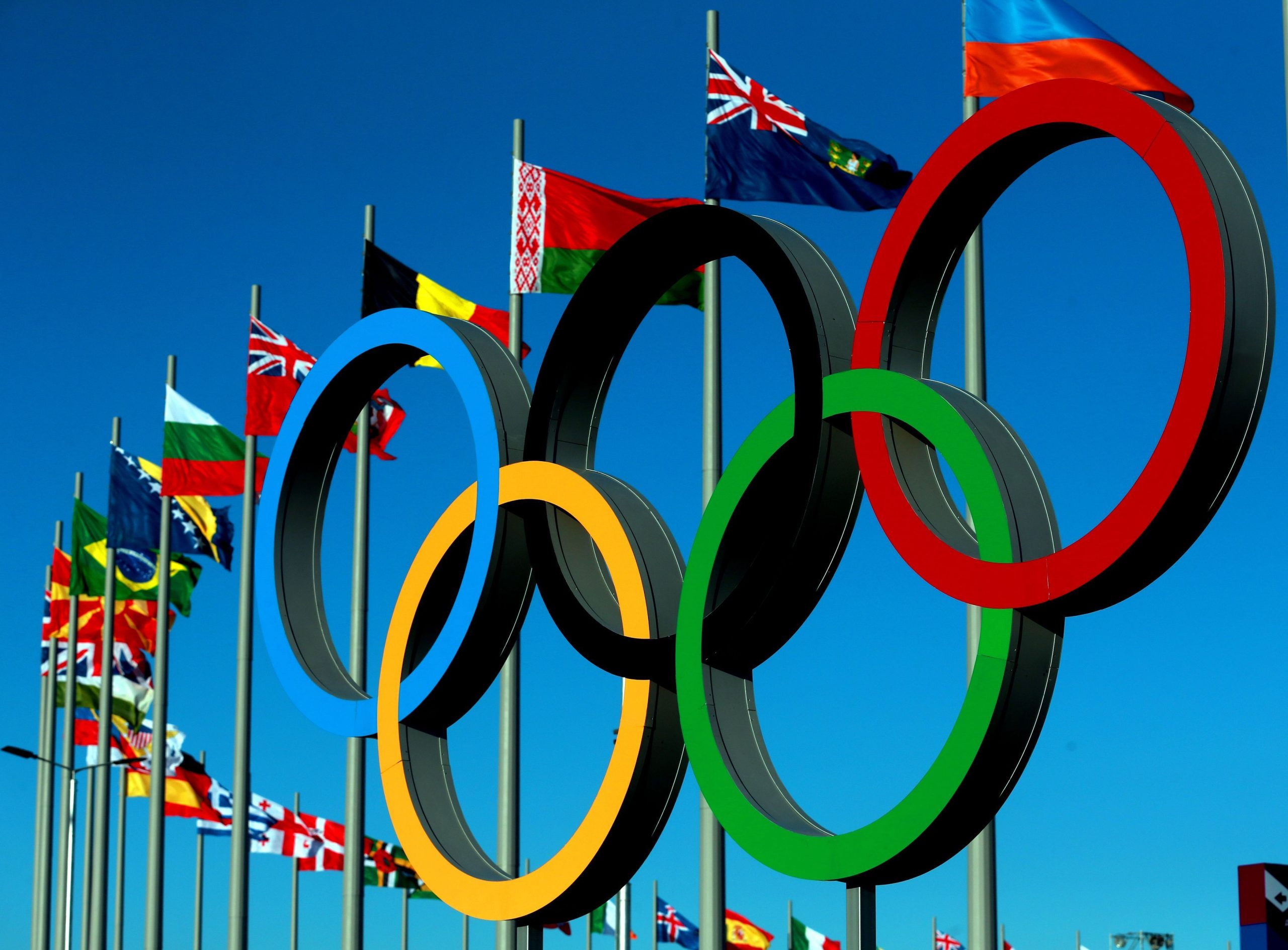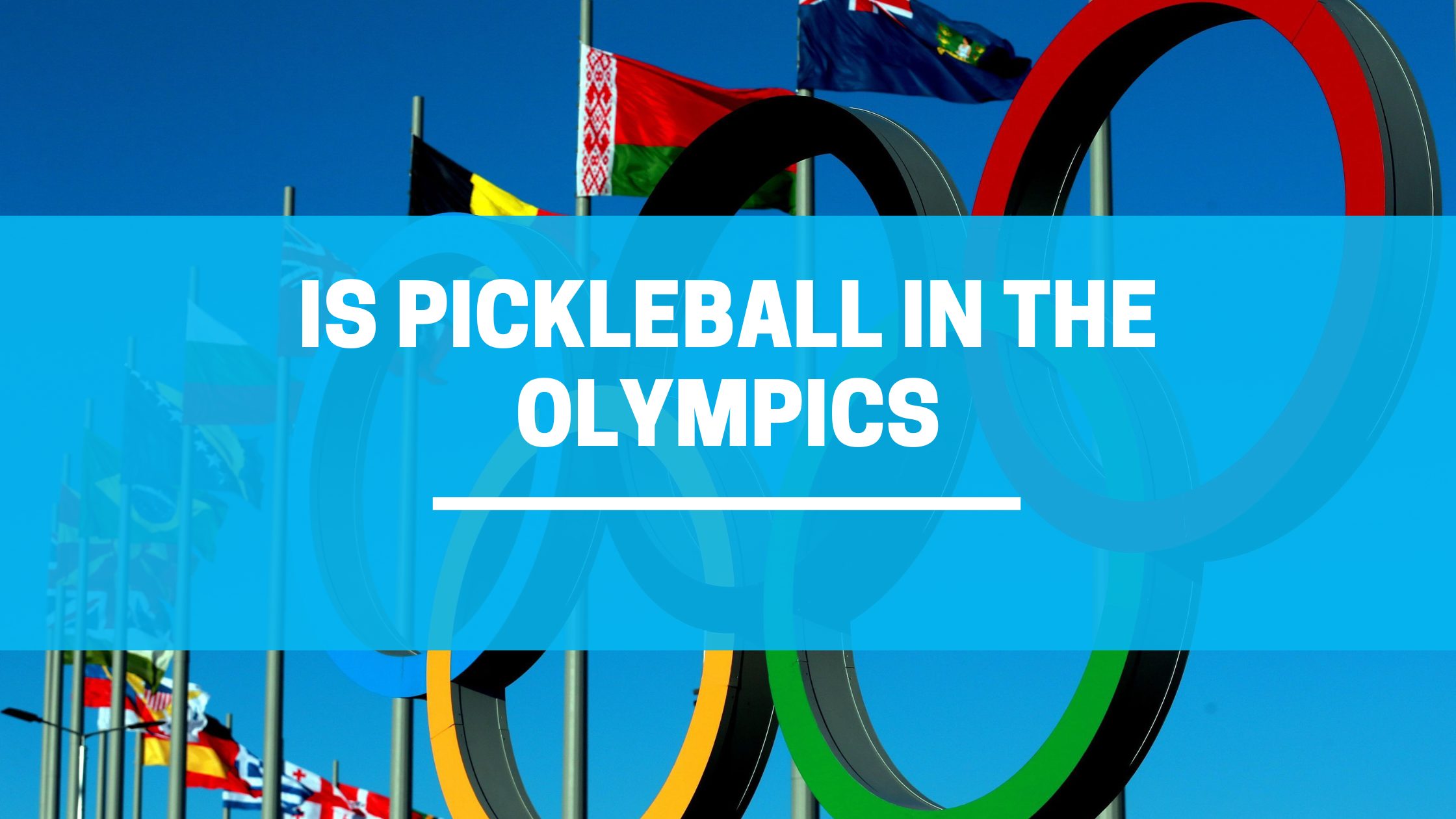
A Debate on the Sport’s Inclusion in the Games
Pickleball has seen a surge in popularity over the past several years, with more and more people picking up the paddle and taking it to court. One of the biggest queries in the sporting world is “Is Pickleball in the Olympics?” whether Pickleball will ever feature in the biggest competition of all – the Olympics. In this blog, we aim to answer this question: Is Pickleball an Olympic sport?
What is Pickleball
Pickleball is a hybrid of tennis, badminton and table tennis and is played on a court that is one-third the size of a tennis court. It is a game that is both fun to play and easy to learn, making it an ideal sport for both the young and old. The game is played with a lightweight, plastic perforated ball and wooden paddles and can be played both indoors and outdoors.
History of Pickleball
For complete detail, must read “History Of Pickleball“

Is Pickleball In The Olympics
The query that pops up frequently is: Is Pickleball in the Olympics? But the answer remains the same; Pickleball is not currently in the Olympics. Despite its growing popularity, it has not yet been recognised by the International Olympic Committee (IOC) as a sport suitable for inclusion in the Olympic Games. Efforts are being made to get pickleball recognised as an Olympic sport, but several challenges and obstacles must be overcome before it can be considered for inclusion.
These include limited resources and organization of the sport, lack of recognition from the Olympic committee, and competition from other sports that are also vying for inclusion in the Olympics. While the future of pickleball in the Olympics remains uncertain, the sport’s growing popularity and international representation give hope for its recognition as an Olympic sport in the future.
Rules of Entry into the Olympic Games
The Olympic Games are the biggest sporting event in the world, watched by millions every four years. The International Olympic Committee (IOC), the governing body of the Olympics, sets the rules of entry into the Olympics. These rules ensure that only the best athletes and sports are represented at the Olympic Games.

The first step to entering the Olympics is to be recognised by the IOC. This recognition is granted to international sports federations when they meet specific criteria and demonstrate an international following. Each sport must be recognised by at least two-thirds of the IOC members and have an international fan base.
The second criteria to be considered for Olympic entry is to show that the sport has international popularity. The IOC must be satisfied that the sport has enough of a following to make it attractive to Olympic viewers. As well as this, the sport must have a professional level, with athletes competing for money. This is essential to ensure that the sport is played competitively.
Finally, the sport must have national federations in multiple countries. The IOC must recognise these federations and have their own international governing body. This means that the sport is played in multiple countries and is popular enough to be considered international.
Discussion of the International Olympic Committee’s (IOC) recognition of the sport
The International Olympic Committee (IOC) is the governing body responsible for recognising and including sports in the Olympic Games. For a sport to be recognised by the IOC and included in the Olympics, it must meet certain criteria and undergo a rigorous evaluation and approval process.

The IOC has established several criteria that sports must meet to be considered for inclusion in the Olympics. These criteria include:
To be recognized by the IOC, a sport must first be proposed by its international governing body. The proposal is then evaluated by the IOC’s program commission, which assesses the sport’s compliance with the criteria listed above. If the commission finds that the sport meets the criteria, it will recommend that the sport be included in the Olympics.
The final decision on the inclusion of a sport is made by the IOC’s executive board, which takes into account the recommendations of the program commission as well as other factors such as the overall balance of the Olympic program.
Benefits and Challenges of Adding Pickleball To The Olympics
we’ll explore the potential benefits and challenges of adding pickleball to the Olympics
A. Benefits
An increase in pickleball’s participation in the Olympics could result in a larger number of people playing the sport worldwide. With more exposure to the sport worldwide, more individuals are likely to become interested in trying it out, leading to a rise in numbers. With its inclusion in the Olympics, pickleball would receive international recognition, providing the sport with a higher profile and more visibility, potentially drawing in more sponsors and investors.
Additionally, including pickleball in the Olympics would bring economic advantages to its host cities and countries, with increased revenue from ticket sales and merchandise sales. Lastly, its inclusion would also mean improved standardisation in terms of rules and regulations, which would be beneficial for the further development of the sport.
B. Challenges
Pickleball’s reach is mainly confined to North America, with its popularity gradually increasing in other parts of the world. Despite this, it remains much less widely played than other sports already included in the Olympics. This lack of participation means that Pickleball is not yet eligible for Olympic funding and is also missing a governing body like the International Olympic Committee, making it difficult to adhere to and enforce rules. Competing for a place in the Olympic Games is another challenge, as only a select few sports are included, and Pickleball must compete with these for inclusion.
FAQS
Final Verdict
So, Is Pickleball in the Olympics? No, not yet. Pickleball has seen a rapid rise in popularity in recent years and has the potential to be an Olympic sport. However, it is not yet recognised by the IOC, and several challenges must be addressed before it can be considered for inclusion in the Olympic Games. Although inclusion in the Olympic Games may be a long way off, hopefully, the sport will continue to grow and strive to become an Olympic sport in the future.
